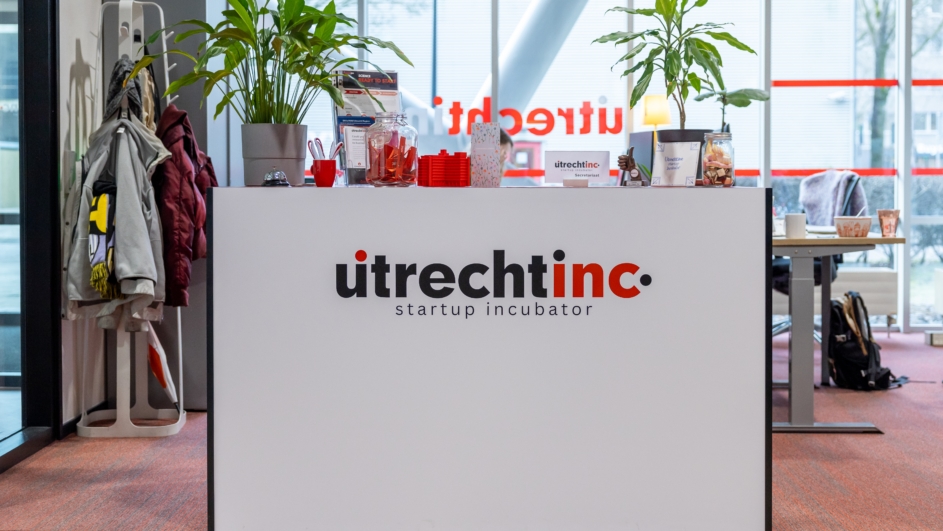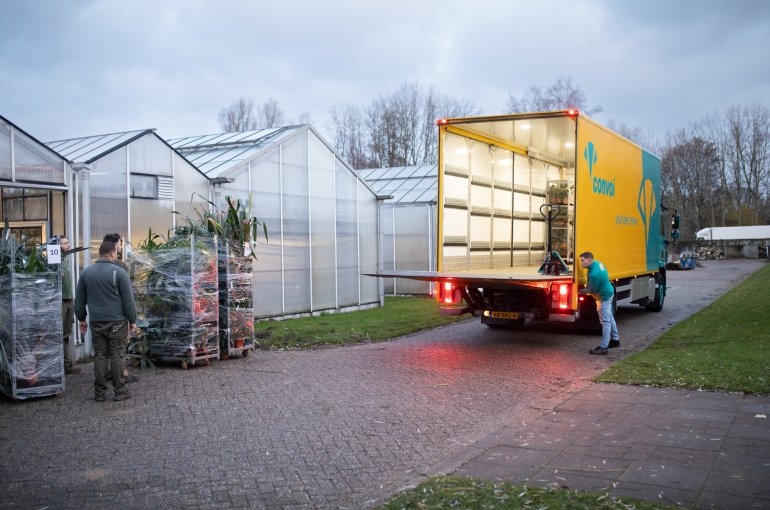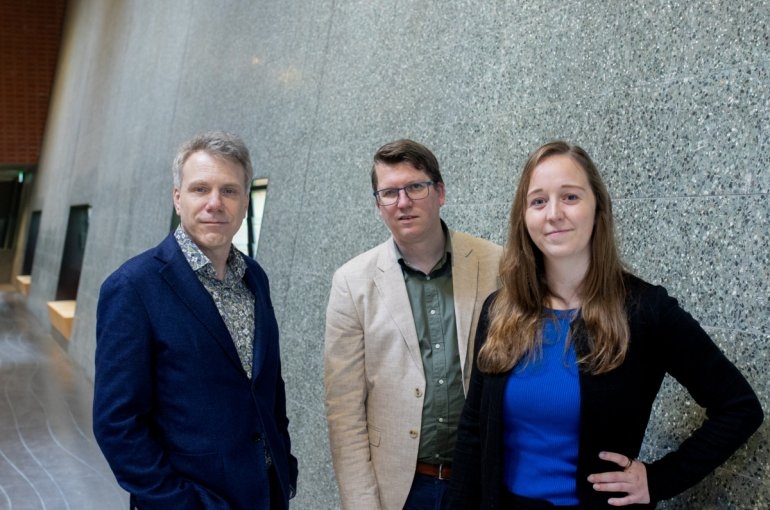Utrecht University uses biomeiler to extract heat and compost at educational farm the Tolakker

When Lasse Lamet, bachelor student Global Sustainability Science, visited a farm in Germany for a study project, he saw a biomeiler: a large round tank in which compost is made. Building an improved version in Utrecht Science Park, that seemed a fun and above all practical internship assignment to Lasse. He mobilised staff and students to realise the project. Last week, the biomeiler was placed at the Tolakker, the educational farm of the Faculty of Veterinary Medicine.
It is hard to miss the biomeiler at the Tolakker: the tank has a 6-metre diameter and is 3 metres high. What makes a biomeiler special is that the composting process generates usable heat. Within the biomeiler there are several tubes. The water in these tubes captures the heat released during the composting process. That heat is then used by the Tolakker. About 100 megawatts of heat are expected to be released every year. That is equivalent to the annual consumption of four households.
The biomeiler is filled with wood chips and two hundred cubic metres of organic waste. After two years, this produces high-quality compost. Lasse: ‘The composting process in the biomeiler is given plenty of time. Because we can regulate the conditions, this compost will soon contain twice as much organic matter as normal compost. Organic matter nourishes life in the soil and retains water better.’
Puzzle
To realise the project, a lot had to be arranged. Think financing, permits and, of course, a location. Lasse: ‘We looked at ten locations, but each time there was a reason why it couldn’t be done there after all. Zoning plans, cables and pipes: it was like a puzzle, new problems popped up every time.’
To speed up the process, Lasse enlisted the help of the Centre for Living Labs. Together, they invited all stakeholders to a meeting. Then the project gained momentum. Eventually, the installation could be built at the Veterinary Medicine faculty’s teaching farm, the Tolakker. Education coordinator and lecturer IJmert de Vries: ‘Within the Tolakker, we are always looking for opportunities to further improve our business processes and make them more sustainable. Think of the solar panels on the roof of the stables, how we produce organic milk and how we try to increase biodiversity together with other faculties and students. This is how education and research at the Tolakker come together in a beautiful way. Lasse’s project fits seamlessly with our ambition, as an educational farm, to look even more closely at innovation opportunities for a better future.’
Biomeiler 2.0
In cooperation with the Biomeiler Foundation, two improvements have been made to the biomeiler. The first improvement is the addition of a lid. The lid allows additional heat to be captured. The second improvement is active aeration. Lasse: ‘Bacteria cause organic material to compost. They need oxygen, but the amount of oxygen listens closely. With active aeration, the composting process runs optimally and the heat yield is as high as possible.’ Over the next two years, the effectiveness of the improvements will be measured by students.

Applications Now Open for UtrechtInc Validation Programmes
Have you ever wondered what it takes to turn research or an idea into a startup? The validation programmes offered by UtrechtInc may provide the first step. Applications are now open.

Relocating a Rainforest: Behind the Scenes at the Botanic Gardens
The Tropical greenhouses at the Utrecht University Botanic Gardens are among its most beloved attractions. But after decades of service, they are ready for retirement and the decision has been made to replace them. Replacing the Greenhouses is far more complex than tearing down glass and steel. It means temporarily relocating, and later returning, thousands of living plants. How do you even begin to move a rainforest?

AI Lab for the public services gets ICAI-status
The AI Lab for Public Services has joined the national partnership ICAI. This makes it even easier to collaborate with other AI Labs that work with government organisations.

Are you participating in the Utrecht Marathon or are you a keen runner? Register for the Running Symposium on March 19th.
On Sunday, May 31st, Utrecht Science Park will once again be the setting for the Utrecht Marathon. Thousands of runners will line up at the starting line to achieve a fantastic feat: running a quarter, half, or full marathon! To help you prepare optimally, the Utrecht Science Park Foundation, in collaboration with partners Utrecht University, UMC Utrecht, Utrecht University of Applied Sciences, and Olympos Sports Centre, is organizing a running symposium where you’ll be informed and inspired to get the most out of your running performance.